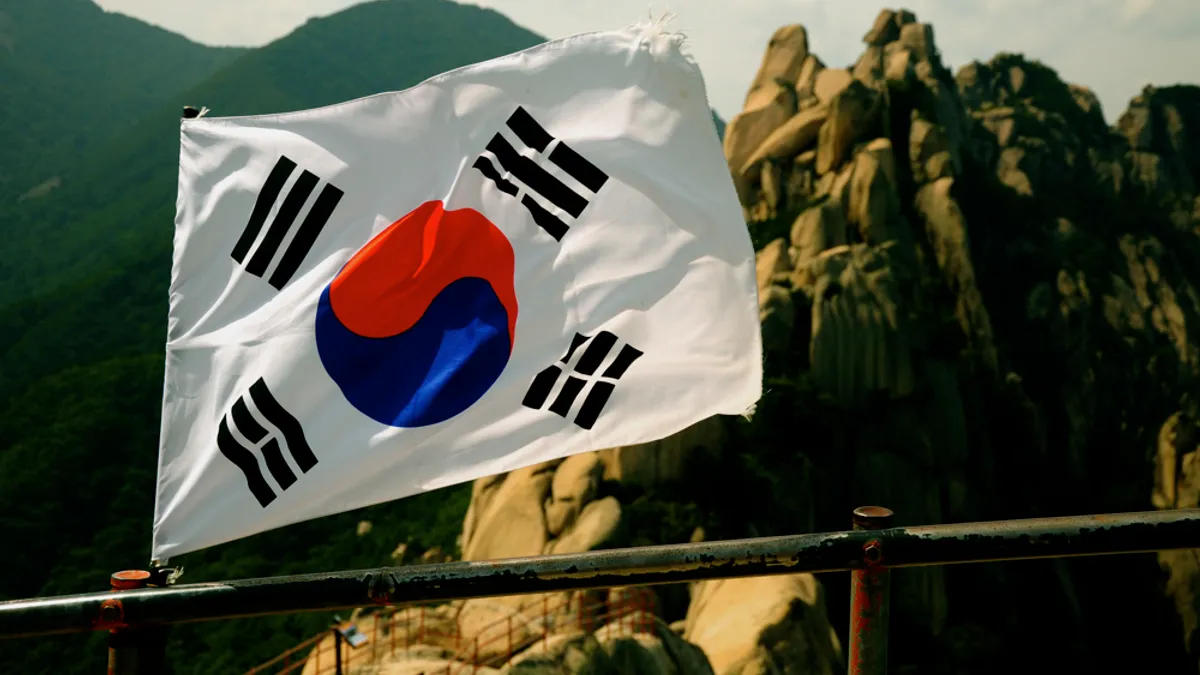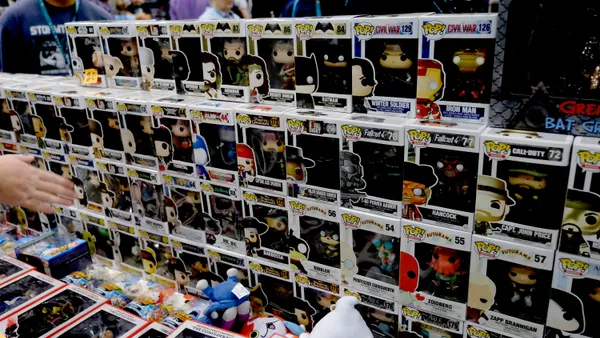Dive Brief:
- Ongoing trade tensions between Japan and South Korea have escalated in recent weeks, with Japan removing South Korea's fast export status in late August and South Korea removing Japan from its fast-track trade "white list" on Tuesday.
- The friction between the two countries began last year after the South Korean Supreme Court issued a ruling that Japanese company Nippon Steel should pay over 100 million won ($87,000) to compensate South Koreans who were forced into unpaid labor for the firm during World War II.
- Trade between the two countries has begun to plummet, as both countries now have to go through added export-import paperwork and evaluation processes for critical goods such as semiconductors, rubber and plastic and machine parts.
Dive Insight:
While the issue of Nippon Steel's compensation plays out in international courts, firms importing and exporting goods between the two countries have begun to feel the strain in the form of additional bureaucratic legwork and delays.
Import-export processes, which previously took five days, could now take as many as 15, according to South Korea's Yonhap News Agency.
Japan's Minister of Economy, Trade and Industry, Isshu Sugawara, called South Korea's decision to downgrade the country's status "regrettable," according to a Business Insider report. Though a statement from the South Korean government said the move was not retaliatory but meant to "improve South Korea's export control system."
For firms manufacturing in, or importing from, the region, the trade war has raised concerns over sourcing. In an earnings call in July of this year, LG Display's CFO Dong-Hee Suh said, "we are making preparations by ensuring uninterrupted sourcing for the short term and diversifying sourcing channels over the medium term," as the Japanese government levied export restrictions on critical inputs for technology manufacturing.
At the time, the Computing Technology Industry Association, Consumer Technology Association, the Information Technology Industry Council and other organizations sent the Japanese and South Korean trade ministers a letter calling on the two countries to expediently resolve their differences and end the restrictions. Yet tensions in the region have only intensified.
According to a recent Bloomberg analysis, Japan has the upper hand in the conflict thus far, as it has a trade surplus with South Korea, and invests nearly four times more there than South Korea invests in Japan. South Korea currently imports primarily raw materials, and technological or manufacturing components from Japan, whereas Japan's imports of the same materials are more diversified throughout other Asian countries.
In spite of this, neither country stands to gain from increasingly agitated trade relations as their economies remain closely linked. South Korea was Japan's third-largest trading partner in 2018, after China and the United States. Japan was South Korea's fifth-largest trading partner last year, also after China and the U.S.
This story was first published in our weekly newsletter, Supply Chain Dive: Procurement. Sign up here.















